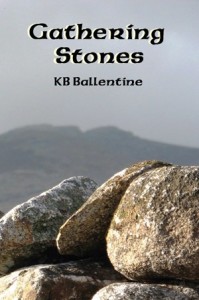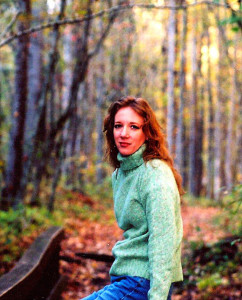 by K.B. Ballentine
by K.B. Ballentine
Gathering Stones is a trilogy through time. In A Time to Speak, the author introduces us to the folklore that first influenced her reading and fascination with Ireland. The second section moves away from folklore to reality as KB poignantly explores the more unsettled periods of Irish history – the struggles for freedom, the Great Famine of the nineteenth century and its legacy on America, and the more recent Troubles in Northern Ireland. For millions in Ireland, it was A Time to Die. The concluding segment focuses on the beauty of Ireland, the Ireland that most people think about – the forty shades of green, the coastal cliffs, the narrow twisting roads, the large stone castles, the islands off the west coast, the peat fires and pubs, and the friendliness of people who love nothing better than the return of a distant family member, even if it is only a “quick wee visit.” A Time to Dance celebrates the author’s triumphant journey of self-discovery to her ancestral home.
978-0-9658950-9-5
100 pages, soft cover
$15.00
Gathering Stones
 Author
Author
KB Ballentine resides in Dayton, Tennessee and teaches English, theatre arts and creative writing to high school and college students. She has a M.A. in Writing and a MFA in Creative Writing, Poetry. Her work has appeared in numerous journals and publications, including Bent Pin, MO: Writings from the River, Sequoia Review, Apocalypse and Touchstone. In 2006 she was a finalist for the Joy Harjo Poetry Award and in 2007 was awarded the Dorothy Sargent Rosenberg Poetry Prize.
Reviews
“KB Ballentine has a deep and sure sense of Irish history and
society. This sense is profound when coupled with her ability to
blend time and space into spiritual understanding. A spiritual empathy permeates her poems of place – making one feel the abiding loss and sadness in Ireland’s past. Her empathy is the province of the true poet – a painter’s light touch; a poet’s vision.”
–Jesse Lendennie, Editor/Publisher
Salmon Poetry Ltd., Co. Clare, Ireland
“Though often silent,/the dead don’t lie when they speak,” KB Ballentine tells us early in Gathering Stones. In these excellent poems the dead as well as the living are given their say, and one poet’s search for her ancestral home ripples out in time to become a vivid and haunting rendering of Ireland’s ‘terrible beauty.’
–Ron Rash, Raising the Dead
Excerpts
Midsummer’s Eve
The firefly lights the wild hare’s eye and to the north
the white door opens under bare Ben Bulben.
Darkness inks all corners of the sky, light scuttling
for cover, resurfacing with the pale round moon.
Hayricks burgeon in fields as rowans fade,
summer growth waning. Wind rustles the musky
night, and ribbons of fog stretch into vapor. Ashen
and ghostly, a barn owl blunders across the horizon.
Toads nudge from mud baked by the sun’s rays and croak a bass
to the crickets’ hum; Carolan’s harp couldn’t compose such a tune.
This is the night old dames gather herbs to store
for samhain, when frost hoars the hardening earth;
this is the night when girls on the cusp of womanhood long
for a chance to dance with the king of the faeries.
The moon fades as daybreak lavenders the sky; crickets and toads
grow quiet while a doe and her fawn stir the mist across the woodline.
Dawn shimmers and approaches, shadows tarry at the base
of Ben Bulben and the white door closes once more.
Beal na mBlath
The Twelve Apostles delivered their bouquets
of bullets and bombs, and Collins signed
the bill. Irish love dispatched these directly
to the head, the heart – a gift. The world
disordered, all that went before like petals
scattered by the wind.
Uninvited, ignoring the Lord’s
day, the enemy rolled onto the playing field to toss
their own spray at anyone who could catch them,
and twelve did. The struggle brought new fodder
to the fight. The Big Fella tried to make it right,
but in the safety of home, at the mouth of flowers,
a bouquet was delivered to him.
McGann’s Pub, Doolin
– A break in the music, and I push past
tourists slanting against the scarred bar
until I spot Mick. He nods me to a corner,
swapping his fiddle for a half-finished
pint on his way over. Just back from Nepal,
with a kiss for each cheek and a How’ve ye
been? he slouches next to me, launches
yarns of mountains and snow and a yak
that ran off with his gear.
I wait
for the story of the other woman I’d heard
already from friends. It could have been
me. It was me. What about the other
other woman? That’s the story I don’t get
in the smoke and stout-filled air. Laughter,
glasses clinking backdrop to the tin whistle,
the bodhrán that gluts my body, my blood.
He heads for the fiddle again, tunnels through
the crowd savoring the craic. Pipes, drums,
strings swell the air, drown the natter.
The other players welcome him back to the circle
as though he’d never left, like no hole had ever appeared.